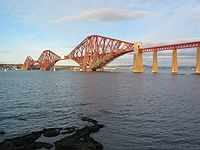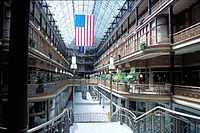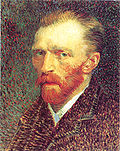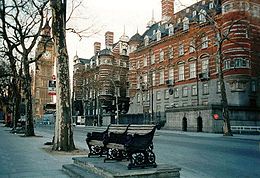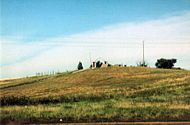- 1890
-
This article is about the year 1890.
Millennium: 2nd millennium Centuries: 18th century – 19th century – 20th century Decades: 1860s 1870s 1880s – 1890s – 1900s 1910s 1920s Years: 1887 1888 1889 – 1890 – 1891 1892 1893 1890 in topic: Humanities Archaeology – Architecture – Art – Literature – Music By country Australia – Canada – France – Germany – Mexico – South Africa – US – UK Other topics Rail Transport – Science – Sports Lists of leaders Colonial Governors – State leaders Birth and death categories Births – Deaths Establishments and disestablishments categories Establishments – Disestablishments Works category Works 1890
MDCCCXCAb urbe condita 2643 Armenian calendar 1339
ԹՎ ՌՅԼԹAssyrian calendar 6640 Bahá'í calendar 46 – 47 Bengali calendar 1297 Berber calendar 2840 British Regnal year 53 Vict. 1 – 54 Vict. 1 Buddhist calendar 2434 Burmese calendar 1252 Byzantine calendar 7398 – 7399 Chinese calendar 己丑年十二月十一日
(4526/4586-12-11)— to —庚寅年十一月二十日
(4527/4587-11-20)Coptic calendar 1606 – 1607 Ethiopian calendar 1882 – 1883 Hebrew calendar 5650 – 5651 Hindu calendars - Bikram Samwat 1946 – 1947 - Shaka Samvat 1812 – 1813 - Kali Yuga 4991 – 4992 Holocene calendar 11890 Iranian calendar 1268 – 1269 Islamic calendar 1307 – 1308 Japanese calendar Meiji 23
(明治23年)Korean calendar 4223 Minguo calendar 22 before ROC
民前22年Thai solar calendar 2433
Year 1890 (MDCCCXC) was a common year starting on Wednesday (link will display the full calendar) of the Gregorian calendar and a common year starting on Monday of the Julian calendar.Events
January–March
- January 1
- The Kingdom of Italy establishes Eritrea as its colony in the Horn of Africa.
- In Michigan, the wooden steamer Mackinaw burns in a fire on the Black River.[1]
- January 2
- The steamship Persia is wrecked off Corsica; 130 lives are lost.[2]
- Alice Sanger becomes the first female staffer in the White House.[3]
- January 15 – The Sleeping Beauty (ballet) with music by Tchaikovsky is premiered at the Imperial Mariinsky Theatre in St Petersburg, Russia.
- January 25
- The United Mine Workers of America is founded.
- Nellie Bly completes her round-the-world journey in 72 days.
- February 17 – The British steamship Duburg is wrecked in the China Seas:[disambiguation needed
 ] 400 lives are lost.[4]
] 400 lives are lost.[4] - February 24 – Chicago is selected to host the Columbian Exposition
- March 1
- The British steamship Quetia founders in the Lorres Straits: 124 lives are lost.[5]
- Léon Bourgeois succeeds Jean Antoine Ernest Constans as French Minister of the Interior.
- March 3 – The first football game in Ohio State history is played in Delaware, Ohio against Ohio Wesylan where Ohio State won 20–14.
- March 4 – The longest bridge in Britain, the Forth Bridge (8,296 ft) in Scotland, is opened.
- March 8 – North Dakota State University is founded in Fargo, North Dakota.
- March 20 – Wilhelm II of Germany dismisses Otto von Bismarck.
- March 27 – A tornado strikes Louisville, Kentucky, killing 76 people and injuring 200.
- March 28 – Washington State University is founded in Pullman, Washington.
April–June
- April 14 – Commercial Bureau of the American Republics
- May 12 – The first ever official County Championship cricket match begins in Bristol; Yorkshire beats Gloucestershire by 8 wickets.
- May 31 – The 5-story skylight Arcade opens in Cleveland, Ohio.
- June 1 – The United States Census Bureau begins using Herman Hollerith's tabulating machine to count census returns.
- June 12 – In Michigan, the wooden steamer Ryan is lost near Thunder Bay Island.[1]
- June 20 – The Picture of Dorian Gray by Oscar Wilde published by Philadelphia based Lippincott's Monthly magazine.
July–September
- July – Politics of Japan: In the first general election for the House of Representatives of Japan, c. 5% of the adult male population elect a lower house of the Diet of Japan.
- July 1 – Heligoland-Zanzibar Treaty is signed by Great Britain and Germany.
- July 2 – The Sherman Antitrust Act and Sherman Silver Purchase Act become United States law.
- July 3 – Idaho is admitted as the 43rd U.S. state.
- July 10 – Wyoming is admitted as the 44th U.S. state.
- July 13 – In Minnesota, storms result in the Sea Wing disaster on Lake Pepin killing 98.
- July 14 – First recorded use of lime-green to describe a color.[6]
- July 26 – In Buenos Aires, the Revolución del Parque takes place, forcing President Juárez Celman's resignation.
- July 29 – Dutch artist Vincent van Gogh dies near Paris, France, after shooting himself.
- August 6 – At Auburn Prison in New York, William Kemmler becomes the first person to be executed in the electric chair.
- September 19 – The Turkish frigate Ertogrul founders off Japan; 540 lives are lost.[7]
October–December
- October 1 – Weather Bureau (within Department of Agriculture).
- October 9 – The first brief flight of Clément Ader's steam-powered fixed-wing aircraft Eole takes place in Satory, France. It flies uncontrolled approximately 50 m (160 ft) at a height of 20 cm, the first take-off of a powered airplane solely under its own power.[8][9][10]
- October 11 – In Washington, D.C., the Daughters of the American Revolution is founded.
- October 13
- In Michigan, the schooner J.F. Warner is lost at Thunder Bay.[1]
- The Delta Chi Fraternity is founded by 11 law students at Cornell University in Ithaca, New York.
- November 23 – King William III of the Netherlands dies without a male heir, and his daughter Princess Wilhelmina becomes Queen, causing Luxembourg (who required a male heir) to declare independence.
- November 29
- The Meiji Constitution goes into effect in Japan and the first Diet convenes.
- In West Point, New York, the United States Navy defeats the United States Army 24–0 in the first Army–Navy Game.
- November – Scotland Yard, headquarters of the Metropolitan Police Service, moves to a building on London's Victoria Embankment, as the New Scotland Yard.
- December – The British steamship Shanghai burns in the East China Sea off the coast of Anhui Province; 200 lives are lost.[11]
- December 29 – Wounded Knee Massacre: At Wounded Knee, South Dakota, a Native American camp, the U.S. 7th Cavalry Regiment tries to disperse the non-violent "Ghost-Dance" which was promised to usher in a new era of power and freedom to Native Americans but was feared as a potential rallying tool for violent rebellion by some in the U.S. government. Shooting begins, and 153 Lakota Sioux and 25 troops are killed; about 150 flee the scene.
Date unknown
- The corrugated cardboard box is invented by Robert Gair, a Brooklyn printer who developed production of paper-board boxes in 1879.
- U.S. Census: Herman Hollerith's invention of recording data on a medium that was machine readable (he used punch cards) and the machines he developed are used to tabulate census data. (see also History of computing hardware). Hollerith's company eventually becomes IBM.
- The prosecution of Edward King, Anglican bishop of Lincoln, for using ritualistic practices ends.
- The United States city of Boise, Idaho drills the first geothermal well.
- Brown trout are introduced into the upper Firehole River in Yellowstone National Park.
- High School Cadets is written by John Philip Sousa.
- William II of Prussia opposes Bismarck's attempt to renew the law outlawing the Social Democratic Party.
- Blackwall Buildings, Whitechapel, noted philanthropic housing, is built in the East End of London.
- W.M.F. Petrie excavated the site of Tell el-Hesi in Palestine, during which excavation he discovered how tells were formed.
- American geostrategist Alfred Thayer Mahan publishes his influential book The Influence of Sea Power upon History, 1660-1783.
- The book Finger Prints by Francis Galton is published. This is an important milestone in the history of forensic crime detection.
Births
January–June
- January 1 – Anton Melik, Slovenian geographer (d. 1966)
- January 5 – Sarah Aaronsohn, member of the Jewish spy ring Nili (d. 1917)
- January 4 – Victor Lustig, Bohemian-born con artist (d. 1947)
- January 9
- Kurt Tucholsky, German-born journalist and satirist (d. 1935)
- Karel Čapek, Czech writer (d. 1938)
- January 11 – Oswald de Andrade, Brazilian Modernist writer (d.1954)
- January 19 – Élise Rivet, French Roman Catholic nun and war heroine (d. 1945)
- January 22 – Fred M. Vinson, Chief Justice of the United States (d. 1953)
- January 28 – Robert Franklin Stroud, Birdman of Alcatraz (d. 1963)
- February 10 – Boris Pasternak, Russian writer (Doctor Zhivago), Nobel Prize laureate (declined) (d. 1960)
- February 14 – Nina Hamnett, Welsh artist (d. 1956)
- February 17 – Ronald Fisher, English biologist (d. 1962)
- February 18 – Adolphe Menjou, American actor (d. 1963)
- February 24 – Marjorie Main, American actress (d. 1975)
- February 25 – Dame Myra Hess, English pianist (d. 1965)
- February 27 – Freddie Keppard, American jazz musician (d. 1933)
- March 3 – Norman Bethune, Canadian doctor and humanitarian (d. 1939)
- March 9
- (new style) Vyacheslav Molotov, Soviet politician (d. 1986)
- Rupert Balfe, Australian rules footballer (d. 1915)
- March 11 – Vannevar Bush, American engineer, inventor, and politician (d. 1974)
- March 20
- Beniamino Gigli, Italian tenor (d. 1957)
- Lauritz Melchior, Danish-American tenor (d. 1973)
- March 28 – Paul Whiteman, American bandleader (d. 1967)
- March 31 – William Lawrence Bragg, English physicist, Nobel Prize laureate (d. 1971)
- April 6 – Anthony Fokker, Dutch aircraft manufacturer (d. 1939)
- April 7
- Marjory Stoneman Douglas, American conservationist and writer (d. 1998)
- Paul Berth, Danish amateur football (soccer) player (d. 1969)
- April 11 – Rachele Mussolini, Italian, wife of Benito Mussolini (died 1979)
- April 15 – Percy Shaw, British inventor (d. 1976)
- April 16 – Fred Root, English cricketer (d. 1954)
- April 20
- Maurice Duplessis, premier of Quebec (d. 1959)
- Adolf Scharf, former President of Austria (d. 1965)
- May 1 – Laurence Wild, 1913 NCAA Men's Basketball All-American, former head coach for the Navy Midshipmen men's basketball, and 30th Governor of American Samoa (d. 1971)
- May 4 – Franklin Carmichael, Canadian artist (d. 1945)
- May 10 – Alfred Jodl, German general (executed) (d. 1946)
- May 11 – Woodall Rodgers, mayor of Dallas, Texas (d. 1961)
- May 15 – Katherine Anne Porter, American author (d. 1980)
- May 19 – Ho Chi Minh, Prime minister/President of North Vietnam (d. 1969)
- May 23 – Herbert Marshall, English actor (d. 1966)
- June 6 – Ted Lewis, American jazz musician and entertainer (d. 1971)
- June 16 – Stan Laurel, British actor (d. 1965)
- June 26 – Jeanne Eagels, American actress (d. 1929)
July–December
- July 18 – Frank Forde, Australian Prime Minister (d. 1983)
- July 20 – Verna Felton, American character actress (d. 1966)
- July 22 – Rose Fitzgerald Kennedy, American philanthropist and matriarch of the Kennedy family (d. 1995)
- July 29 – Daniel J. Callaghan, American United States Navy officer (d. 1942)
- August 4 – Erich Weinert, German writer and political activist (d. 1953)
- August 5 – Erich Kleiber, Austrian conductor (d. 1956)
- August 10 – Angus L. Macdonald, Nova Scotia Premier (d. 1954)
- August 15
- Jacques Ibert, French composer (d. 1962)
- Elizabeth Bolden, American, last verified person born in 1890 (d. 2006)
- August 18 – Walther Funk, German politician (d. 1960)
- August 20 – H. P. Lovecraft, American writer (d. 1937)
- August 24 – Duke Kahanamoku, American swimmer (d. 1968)
- September 9 – Harland Sanders, Founder of KFC (d. 1980)
- September 10 – Elsa Schiaparelli, French couturiere (d. 1973)
- September 15
- Agatha Christie, English writer (d. 1976)
- Frank Martin, Swiss composer (d. 1974)
- September 20
- Jelly Roll Morton, American jazz pianist, composer, and bandleader (d. 1941)
- Rachel Bluwstein, Israeli poet (d. 1931)
- October 1
- Katherine Corri Harris, actress first wife of John Barrymore (d. 1927)
- Alice Joyce, American silent film actress (d. 1955)
- Blanche Oelrichs, American poet second wife of John Barrymore (d. 1950)
- October 2 – Groucho Marx, American comedian (d. 1977)
- October 8 – Eddie Rickenbacker, American WWI fighter pilot (d. 1973)
- October 13 – Conrad Richter, American novelist and short story writer (d. 1968)
- October 14 – Dwight David Eisenhower, U.S. general and President of the United States (d. 1969)
- October 16
- Michael Collins, Irish patriot (d. 1922)
- Paul Strand, American photographer (d. 1976)
- October 17 – Roy Kilner, English cricketer (d. 1928)
- October 29 – Hans-Valentin Hube, German army general (d. 1944)
- November 7 – Jan Matulka, American painter (d. 1972)
- November 20 – Leon Cadore, American baseball pitcher (d. 1968)
- November 22 – Charles de Gaulle, President of France (d. 1970)
- November 23 – El Lissitzky, Russian artist and architect (d. 1941)
- December 5 – David Bomberg, English painter (d. 1957)
- December 8 – Bohuslav Martinů, Czech composer (d. 1959)
- December 10 – Henry Louis Larsen, American Marine Corp General; Governor of American Samoa and Governor of Guam (d. 1962)
- December 11 – Carlos Gardel, Argentine tango singer (d. 1935)
- December 20 – Jaroslav Heyrovský, Czech chemist, Nobel Prize laureate (d. 1967)
- December 21 – Hermann Joseph Muller, American geneticist, recipient of the Nobel Prize in Physiology or Medicine (d. 1967)
- December 25 – Robert Ripley, collector of odd facts (d. 1949)
- December 26 – Uncle Charlie Osborne, Appalachian fiddler (d. 1992)
- December 30 – Lanoe Hawker, British fighter pilot (d. 1916)
Date unknown
- John Aae, Norwegian politician (d. 1968)
- Bechara El Khoury, President of Lebanon (d. 1964)
- Taixu, Chinese Buddhist activist (d. 1947)
Deaths
January–June
- January 7 – Augusta of Saxe-Weimar-Eisenach, Empress Consort of William I, German Emperor (b. 1811)
- January 18 – King Amadeus I of Spain (b. 1845)
- February 22
- John Jacob Astor III, American businessman (b. 1822)
- Carl Heinrich Bloch, Danish painter (b. 1834)
- March 3 – Innocenzo da Berzo, Capuchin friar (b. 1844)
- March 7 – Karl Rudolf Friedenthal, Prussian statesman (b. 1827)
- March 9 – Sir Mangaldas Nathubhoy, Indian politician (b. 1832)
- March 16 – Princess Zorka of Montenegro (b. 1864)
- April 1 – David Wilber, American politician (b. 1820)
- April 1 – Alexander Mozhaysky, Russian aeronautical pioneer (b. 1825)
- April 11 – Joseph Merrick (The Elephant Man), English oddity (b. 1862)
- June 24 – Subba Row, Hindu theosophist (b. 1856)
- June 30 – Samuel Parkman Tuckerman, American composer (b. 1819)
July–December
- July 9 – Clinton B. Fisk, American philanthropist and temperance activist (b. 1828)
- July 13
- John C. Frémont, American explorer and military officer (b. 1813)
- Johann Voldemar Jannsen, Estonian journalist and poet (b. 1819)
- July 15 – Gottfried Keller, Swiss writer (b. 1819)
- July 29 – Vincent van Gogh, Dutch painter (b. 1853)
- August 11 – John Henry Newman, English Roman Catholic Cardinal (b. 1801)
- October 4 – Catherine Booth, Mother of The Salvation Army (b. 1829)
- October 20 – Richard Francis Burton, English explorer, linguist, soldier (b. 1820)
- October 26 – Carlo Collodi, Italian writer (The Adventures of Pinocchio) (b. 1826)
- November 3 – Ulrich Ochsenbein, member of the Swiss Federal Council (b. 1811)
- November 4 – Felix du Temple de la Croix, French Army Captain & aviation pioneer (b. 1823)
- November 8 – César Franck, Belgian composer and organist (b. 1822)
- November 11 – Marie-Charles David de Mayréna, French adventurer and self-styled King of Sedang (b. 1842)
- November 23 – King William III of the Netherlands (b. 1817)
- November 24 – August Belmont, Sr., Prussian-born financier (b. 1816)
- December 15 – Sitting Bull, Native American chief (b. c. 1831)
- December 21 – Johanne Luise Heiberg, Danish actress (b. 1812)
- December 26 – Heinrich Schliemann, German archaeologist (b. 1822)
- December 31 – Pancha Carrasco, Costa Rican war heroine (b. 1826)
Date unknown
- Comanche, horse, survivor of Custer's cavalry at the Battle of the Little Bighorn
References
- ^ a b c MSUE-TB-wrecks "Full List of Thunder Bay Region Shipwrecks (by name)". MSU Sea Grant Extension, Northeast District, Michigan State University. 2000. http://web1.msue.msu.edu/iosco/tbfulllist.htm MSUE-TB-wrecks.
- ^ "MANY GREAT LINERS PAID TOLL OF THE SEA; Republic Was First to Utilize the Wireless in Calls for Aid". The New York Times. 1912. http://query.nytimes.com/mem/archive-free/pdf?res=FB0814FE3E5813738DDDAF0994DC405B828DF1D3. Retrieved September 14, 2011.
- ^ "This Day in History: 1890". History.com. A&E Television Networks. http://www.history.com/this-day-in-history.do?action=Article&id=95. Retrieved 2009-10-27.
- ^ "MANY GREAT LINERS PAID TOLL OF THE SEA; Republic Was First to Utilize the Wireless in Calls for Aid". The New York Times. 1912. http://query.nytimes.com/mem/archive-free/pdf?res=FB0814FE3E5813738DDDAF0994DC405B828DF1D3. Retrieved September 14, 2011.
- ^ "MANY GREAT LINERS PAID TOLL OF THE SEA; Republic Was First to Utilize the Wireless in Calls for Aid". The New York Times. 1912. http://query.nytimes.com/mem/archive-free/pdf?res=FB0814FE3E5813738DDDAF0994DC405B828DF1D3. Retrieved September 14, 2011.
- ^ The Daily News (London). "lime, n2.". Oxford English Dictionary online version. Oxford University Press. September 2011. http://www.oed.com/view/Entry/108433?rskey=QODUjt&result=2&isAdvanced=false#eid116686059. Retrieved 2011-11-15. Subscription or UK public library membership required
- ^ "MANY GREAT LINERS PAID TOLL OF THE SEA; Republic Was First to Utilize the Wireless in Calls for Aid". The New York Times. 1912. http://query.nytimes.com/mem/archive-free/pdf?res=FB0814FE3E5813738DDDAF0994DC405B828DF1D3. Retrieved September 14, 2011.
- ^ Crouch, Tom D. "Clément Ader". Encyclopædia Britannica. http://www.britannica.com/EBchecked/topic/5780/Clement-Ader. Retrieved 2011-03-03.
- ^ Gray, Carroll (1998-2003). "Clement Ader 1841–1925". Flying Machines. http://www.flyingmachines.org/ader.html. Retrieved 2011-03-03.
- ^ Gibbs-Smith, Charles H. (1959). "Hops and Flights: A Roll Call of Early Powered Take-offs". Flight 75: 468. http://www.flightglobal.com/pdfarchive/view/1959/1959%20-%200937.html. Retrieved 2011-03-03.
- ^ Two Hundred Drowned - Panic among the Chinese on the burned steamer Shanghai
Categories: - January 1
Wikimedia Foundation. 2010.


